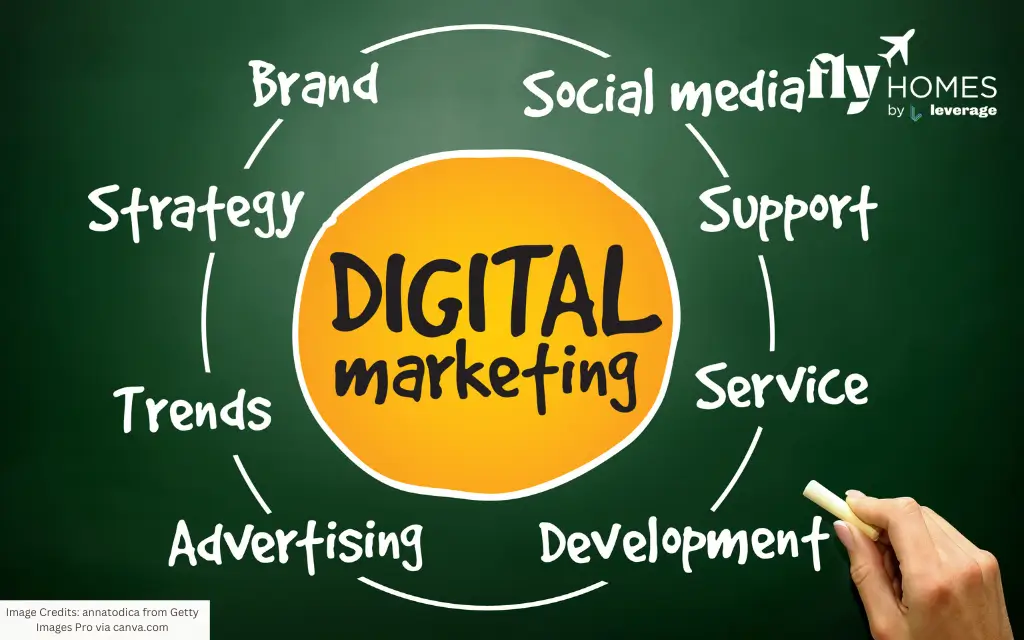In 2025, over 92% of online experiences begin with a search engine and more than 4.8 billion people use social media globally. These numbers reflect the massive shift in how businesses reach and engage customers—and they hint at the enormous potential for anyone who understands how digital marketing works. That’s why, if you’re on the fence about whether enrolling in a digital marketing course is worth it this year, the answer is a loud and confident yes.
Unlike traditional marketing methods, digital marketing evolves at a breathtaking pace. Algorithms change. Platforms rise and fall. Consumer behaviors shift dramatically. A well-structured course helps you not only keep up but also leverage trends before your competitors do. Below are eight compelling reasons why investing your time and money in such a course is one of the smartest moves you can make in 2025.
1. Stay Ahead of the Curve in a Rapidly Changing Industry
The digital marketing landscape is constantly evolving. Google’s Search Generative Experience (SGE), AI-driven ad targeting, zero-click search results, and the rise of voice and visual search have already reshaped strategies that were effective just a year ago. In this fast-paced environment, staying updated is not optional—it’s essential.
A digital marketing course offers more than just knowledge; it provides real-time updates and hands-on tools for adapting to change. Whether it’s mastering new platforms like Threads or understanding how to make your content stand out in an AI-saturated search result page, structured learning gives you the agility to adapt fast and smart.
2. Bridge the Skills Gap Companies Are Desperate to Fill
One of the biggest challenges facing employers today is finding qualified digital marketing professionals who understand both strategy and execution. According to LinkedIn’s 2025 Job Market Outlook, digital marketing remains one of the most in-demand skill sets across industries, especially for roles in SEO, content strategy, performance marketing, and analytics.
Taking a course not only provides these foundational skills but also demonstrates to employers that you’re serious about growing in this space. You don’t just become job-ready—you become future-proof.
3. Open the Door to Diverse Career Opportunities
The beauty of digital marketing is its versatility. It doesn’t limit you to a single career path. Once you complete a comprehensive course, you’re qualified to explore a wide range of roles including content creator, social media strategist, email marketing manager, paid media analyst, conversion rate optimizer, and even marketing automation expert.
Freelancing is also on the rise, with platforms like Upwork and Fiverr reporting an increase in demand for digital marketers. And for entrepreneurs, learning these skills means you can promote your own brand or startup without having to rely on costly agencies.
4. Make Smarter, Data-Driven Decisions
Gone are the days when marketing decisions were based on gut feelings. Today, data reigns supreme. A quality digital marketing course teaches you how to understand metrics that matter—traffic sources, bounce rates, click-through rates, ROI—and use this data to inform strategy.
You’ll learn how to interpret analytics dashboards, identify bottlenecks in marketing funnels, and optimize your campaigns in real-time. This empowers you to deliver measurable results, whether you’re working for a company or launching your own business.
5. Learn From Experts with Real-World Experience
The best courses aren’t taught by theorists; they’re taught by seasoned professionals who have worked with big brands, launched successful campaigns, and navigated the real challenges of digital marketing. In 2025, many top-tier programs also include live sessions, mentorship opportunities, and access to exclusive marketing communities where you can ask questions, share insights, and collaborate with peers.
This kind of environment fast-tracks your learning and gives you insider knowledge that YouTube videos and blog posts can’t offer. You learn what works—and what doesn’t—directly from people who’ve been there.
6. Get Hands-On with the Tools the Pros Use
There’s a massive difference between knowing what a tool does and knowing how to use it effectively. A great course gives you hands-on training with industry-standard platforms like Google Analytics 4, SEMrush, HubSpot, Meta Ads Manager, Mailchimp, and more.
As marketing increasingly relies on automation and AI, familiarity with these tools is becoming a baseline requirement. Many advanced courses even offer simulations, live projects, and access to sandbox environments where you can practice in real time. This ensures that you’re not just theoretically prepared—you’re technically equipped.
7. Boost Your Earning Potential
One of the most practical and motivating reasons to invest in a course is the impact it can have on your income. Digital marketers with certifications and proven skills often earn 30–50% more than their non-certified counterparts. Entry-level roles may start around $40,000 per year, but experienced professionals—especially those who specialize in high-demand areas like SEO, PPC, or conversion rate optimization—can command six-figure salaries.
If you’re running your own business, these skills translate directly into cost savings and revenue growth. Instead of outsourcing your marketing, you manage it in-house with confidence and clarity.
8. Experience the Full Breadth of Modern Marketing
Perhaps most importantly, a digital marketing course helps you understand how all the pieces fit together. Too often, people try to learn marketing in fragments—SEO today, social media tomorrow, maybe email next week. But marketing doesn’t work in silos.
A structured course gives you a 360-degree view of the ecosystem: how content supports SEO, how email integrates with automation, how social media builds brand, how paid ads amplify reach, and how all of it loops back into analytics. This holistic understanding allows you to think like a strategist, not just a technician.
And if you want to go deeper, an advanced digital marketing course gives you the opportunity to specialize further. Whether it’s in AI-powered marketing, cross-channel attribution, or customer journey mapping, higher-level programs elevate your expertise and open up senior-level roles that demand strategic oversight.
Is a Digital Marketing Course Worth It in 2025? Absolutely.
In today’s hyper-connected world, digital marketing is not just a skill—it’s a career catalyst. Whether you’re a student, a job seeker, a small business owner, or someone looking to pivot into a future-proof profession, taking the time to upskill in this area is one of the best decisions you can make.
The return on investment goes beyond money. It’s about confidence. It’s about being in control of your career. And most of all, it’s about being prepared for a future where digital is no longer optional—it’s everything.
Where to Start?
Look for accredited programs that offer a mix of theory and practice, real-time instructor support, project work, and certification upon completion. Reputable platforms like Google Digital Garage, Meta Blueprint, HubSpot Academy, and private institutions like Simplilearn or General Assembly have all stepped up their offerings in 2025 to include AI-led modules, community support, and cutting-edge industry alignment.
Don’t waste time cobbling together YouTube videos or outdated blog posts. If you’re serious about building a digital marketing career, a guided path makes all the difference.
Final Thoughts
2025 is the year where marketing goes deeper into AI, automation, and personalization. But at the core of all these innovations is human strategy—the ability to communicate, connect, and convert. That’s what a digital marketing course teaches you, and that’s why it’s more valuable than ever.
With the right skills, you’re not just keeping pace with the digital world—you’re shaping it.
Related Reads
- Custom Fitness App Development: Build the Fitness App Your Users Actually Want
- Leveraging SEO For Brand Awareness: Boosting Recognition And Traffic
- Roadside Services: What Every Car Owner Needs
- Step-by-Step Guide to Booking Umrah Packages
- Rotary Kiln Incinerator Manufacturers for Science Labs
- Why Choose a Professional Service for Commercial Flood Cleanup?



